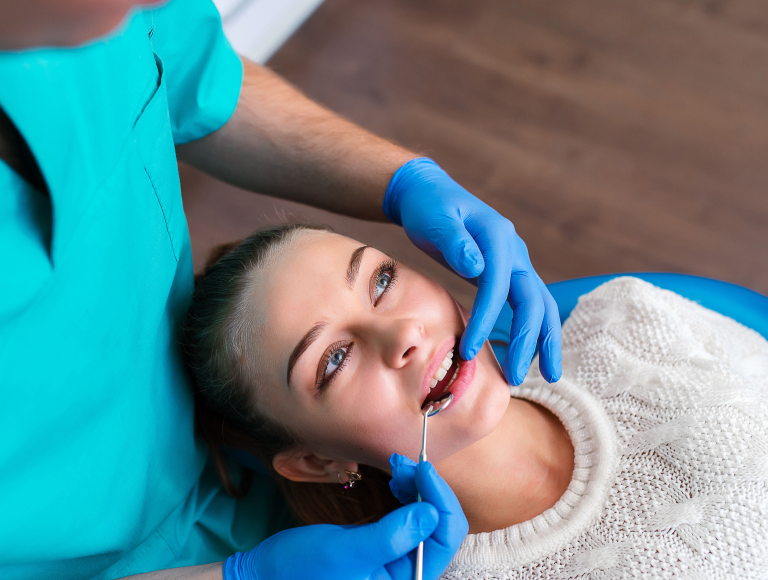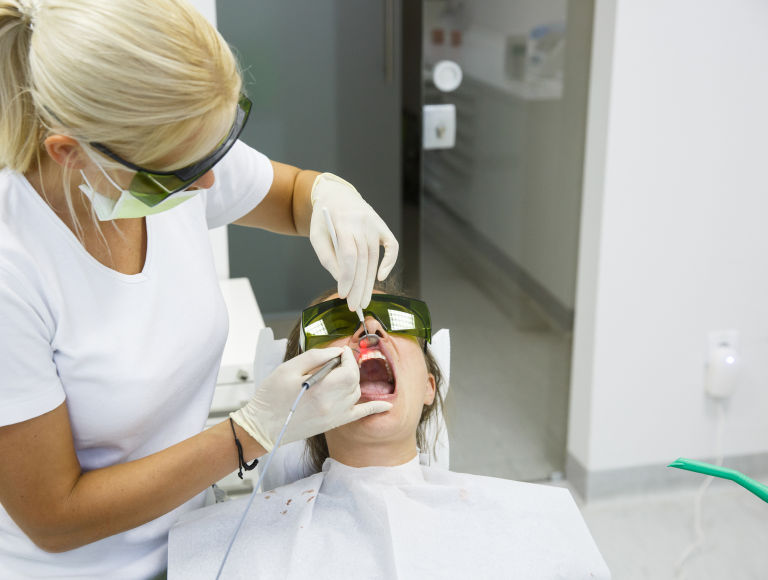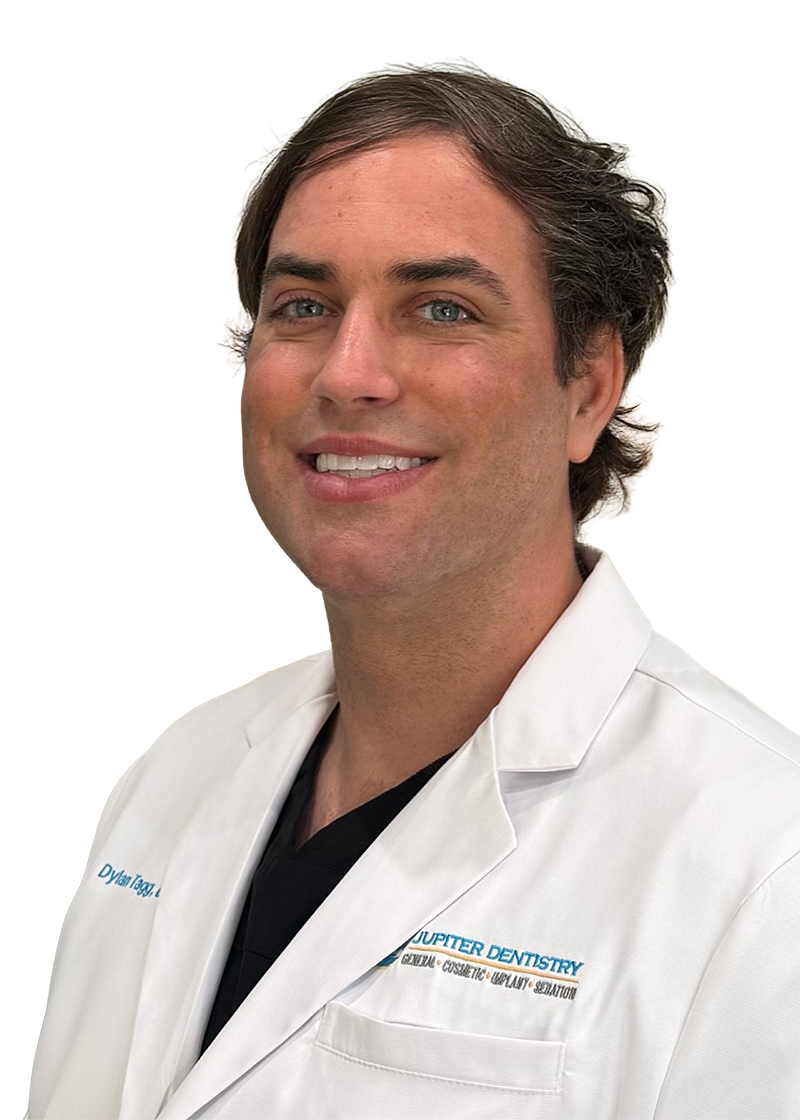Antibiotic Therapy Can Help Treat Periodontal Disease


Gum disease is a serious oral health condition that can lead to tooth loss and other health complications if left untreated. At Jupiter Dentistry, we understand the importance of addressing gum disease effectively. One of the most effective treatments involves the use of antibiotics, either as a standalone solution or in combination with other periodontal therapies.
While antibiotics aren’t always necessary, our Jupiter dentist breaks down the use of them in the fight against gum disease and when they may be recommended. If you have gum disease and need treatment, contact our dental office in Jupiter, FL, today by calling (561) 575-5599.
What Is Antibiotic Therapy?
Antibiotic therapy is a type of treatment approach that uses medications to specifically target and eliminate harmful bacteria that contribute to gum disease. When used in combination with traditional non-surgical treatments like scaling and root planing, antibiotics can help reduce inflammation, improve oral hygiene, and prevent further damage to the gum tissues and bone supporting the teeth.
Antibiotics can be prescribed as a pill, a mouthwash, or as an injection into the affected area. It’s important to follow the prescribed dosage and complete the full course of treatment to ensure maximum effectiveness and reduce the risk of antibiotic resistance.
How Antibiotics Help Treat Gum Disease
Antibiotics are medications that kill or inhibit the growth of bacteria. In the context of gum disease, antibiotics target the harmful bacteria in periodontal pockets—the spaces that form between the teeth and gums due to infection.
Types of Antibiotics Used in Periodontal Therapy
Topical Antibiotics
- Delivered directly into periodontal pockets.
- Common forms include gels, rinses, or microspheres.
- Examples: Chlorhexidine, and doxycycline gel.
Oral Antibiotics
- Taken in pill or capsule form.
- Address bacterial infections throughout the entire body.
- Examples: Amoxicillin, metronidazole, and clindamycin.
Antibiotic Rinses
- Prescription-strength mouthwashes that reduce bacteria levels.
- Typically used as a supplement to other treatments.
Why Choose Antibiotic Therapy for Gum Disease?
Antibiotic therapy offers several advantages for managing gum disease:

- Targeted Treatment: Focuses on harmful bacteria without affecting healthy tissues.
- Minimally Invasive: Often eliminates the need for surgical intervention in mild to moderate cases.
- Complementary to Other Treatments: Enhances the effectiveness of scaling, root planing, or laser therapy.
- Convenient: Topical applications are quick and require no downtime.
If you’re experiencing symptoms of gum disease, schedule an appointment at our Jupiter dental office by calling (561) 575-5599.
How Antibiotic Treatment Works
Antibiotic therapy works by targeting the bacteria causing the infection. When you take antibiotics, they’re absorbed into your bloodstream and travel to the site of the infection. Once there, they work to either kill the bacteria or slow their growth. This allows your immune system to fight the infection more effectively.
However, not all bacterial infections require antibiotics. In some cases, your immune system can fight off the infection on its own. Our Jupiter general dentist will evaluate your condition and determine whether or not antibiotic therapy is necessary.
Antibiotic Alternatives
Antibiotics aren’t the only option for gum disease treatment. Several alternatives that may be recommended include:

- Herbal remedies: Some herbs, such as tea tree oil or echinacea, have antibacterial properties that can assist in fighting off the bacteria that cause gum disease. They may be used in the form of mouthwash, supplements, or topical treatments.
- Probiotics: These are beneficial bacteria that can help balance the oral microbiome and prevent harmful bacteria from proliferating. They can be taken as supplements or consumed in fermented foods, like yogurt.
- Laser Therapy: A non-invasive treatment that uses special dental lasers to remove plaque and bacteria from the gum line.
Costs of Antibiotics for Periodontal Disease
The costs of antibiotic therapy for gum disease treatment can vary depending on various factors, including the specific antibiotics prescribed, the duration of treatment, the severity of the gum disease, the geographic location, and the dental provider’s fees. In general, antibiotics are often prescribed as an adjunctive therapy alongside non-surgical gum disease treatments such as scaling and root planing (deep cleaning) or periodontal surgery.
The cost of the antibiotics themselves can range from relatively inexpensive generic versions to more expensive brand-name medications. Not all cases of gum disease require antibiotic therapy, and the decision to prescribe antibiotics should be made by a qualified dental professional based on a thorough examination and diagnosis.
To get an accurate estimate of the costs involved in antibiotic therapy for gum disease treatment, it’s best to consult with your dentist or periodontist who can evaluate your specific condition and provide you with a detailed treatment plan and cost breakdown. Dental insurance coverage may also influence the out-of-pocket expenses associated with gum disease treatment.
Frequently Asked Questions
How long does it take for antibiotics to work in treating gum disease?
The time it takes for antibiotics to work in treating gum disease varies depending on the severity of the infection and the type of antibiotic used. However, in most cases, patients can expect to see improvement in their gum disease symptoms within a few days to a week of starting antibiotics. It’s important to follow the full course of treatment prescribed by your dentist or healthcare provider, even if symptoms improve quickly.
What are the common side effects of antibiotics used in gum disease treatment?
Common side effects of antibiotics used in gum disease treatment may include upset stomach, diarrhea, and yeast infections. Some antibiotics may also cause allergic reactions, such as hives or difficulty breathing. It’s important to discuss any concerns about side effects with your dentist or healthcare provider before starting treatment.
Can antibiotics be used as the sole treatment for gum disease, or do they need to be combined with other therapies?
Antibiotics are often used in combination with other therapies, such as deep cleaning procedures like scaling and root planing, to treat gum disease. While antibiotics can be effective in reducing the bacterial infection that causes gum disease, they may not address other underlying factors contributing to the condition, such as poor oral hygiene or smoking.
Take Control of Your Oral Health With Antibiotic Therapy for Gum Disease
Don’t let gum disease compromise your oral health and overall well-being. If you’re in Jupiter, FL, and seeking effective treatment options, get in touch with Jupiter Dentistry today. Call (561) 575-5599 to schedule your appointment at our Jupiter dental practice and take the first step toward a healthier smile!


Complimentary Consultation
or 2nd Opinion
- Exam
- Full mouth X-rays
- Private Consultation with Doctor ($350 value)
- 2151 FL A1AAlt #1300,
Jupiter, FL 33477 - (561) 575-5599
- Monday: 8am - 5pm
- Tuesday: 8am - 5pm
- Wednesday: 8am - 5pm
- Thursday: 8am - 5pm
- Friday - Saturday - Sunday: Closed